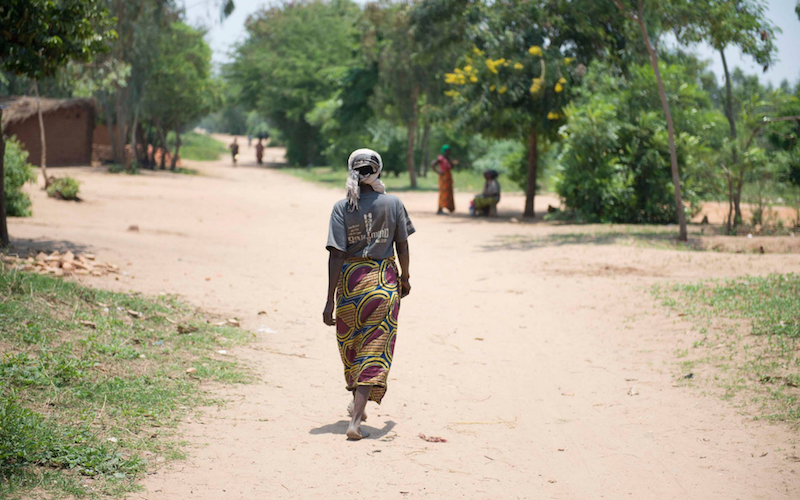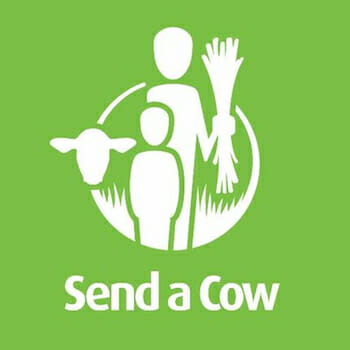
Aid: The Big Debate
By Richie Alford for Send a Cow
As Director of Research and Impact for the international development charity Send a Cow, I recently attended a heated, and at times controversial, debate on aid at London City Hall. The theme of the debate was ‘Reliance vs Resilience: Is aid just a sticking plaster?’ It wasn’t long however before the panelists and the debate itself veered outside of these parameters, and I was encouraged by how many issues were touched upon in an hour and of the bold statements that arose.
Chaired by former BBC Newsnight presenter, Gavin Esler, and featuring panelists such as John Hilary, Executive Director of War on Want, Dr. Titi Banjoko, Managing Director of Africa Recruit and Richard Dowden, Director of the Royal African Society, who are all highly critical of aid, I knew the discussion wouldn’t be easy going.
Aid comes in multiple forms and no version escaped the debate unscathed. Many of the panelists agreed that the impact of aid is distorted and diluted by working alongside governments and multinationals.
John Hilary made the point that “poverty is political” and a direct consequence of decisions made by the political and governmental elite. Quoting former President Nixon he said: “Don’t believe that aid is about helping other people – it’s about furthering our own interest and our control.”
I couldn’t help but agree with some of what he was saying. Indeed, our history is littered with examples of aid being used to garner political influence and not to the benefit of those most in need. Many see the contemporary rise of Chinese influence on the continent as an offshoot of African nations growing weary of Western conditionality. John Hilary highlighted the International Monetary Fund’s role in opening up the Ghanaian poultry market to international market pressures and its subsequent collapse.
But how can organizations like Send a Cow remain relevant if that were the case? Africa’s population is set to double by 2050 and over 220 million are malnourished right now. There’s a time bomb ticking and it’s time to act.
Rather than dismiss the role of aid altogether, panelist and BBC broadcaster, Kate Adie, argued for a more grassroots approach. She said: “[Charities] should target communities directly. Ask them what they need and deliver…give people skills, training, seeds and money to support businesses…teach them the skills so that they can use them and pass them on.”
I couldn’t agree more. Although Kate was exasperated at the amount of aid she’d seen wasted over the years, she could also see real value in giving people the knowledge and the means to start their own businesses and make futures for themselves.
The boldest comments of the evening came from Nigerian born panelist, Dr. Titi Banjoko, who argued that aid removes governments’ accountability to provide for their citizens. She questioned: “Why does Nigeria get aid? The amount of money they have – and where is it?” Stephen Browne, Founder and Co-director of the Future United Nations Development System echoed this with a comment that an estimated £1 trillion leaves the continent every year in various forms. For me, this is an issue of international political leadership, both African and global, modelling a style of leadership for greater equity.
Send a Cow had chosen not to have a panelist and several guests comment on how brave we were to host such a debate considering we are in the industry of aid, albeit international development. But it was important for us to hold an open and honest discussion. Furthermore, after 30 years’ experience we have the confidence that what we do works and we have the results to prove it.
There’s no denying that some strong arguments were made, but when we consider the number of people still living in extreme poverty and suffering from malnutrition it is clear that aid, in some form, remains necessary. We at Send a Cow see aid as an investment in the future of Africa. Yes, there are issues with how and with what purpose aid is delivered and what conditions are attached, but we target smallholders in rural areas, often a long way from the reach of government funds and left isolated.
Send a Cow is much bigger than its name suggests. Our direct approach, which doesn’t go through governments, but seeks to implement programs in areas of extreme hardship: providing tools, training, seeds and livestock, is effective. We work with groups that become their own advocates within the country and have the confidence to challenge politics at a grassroots level.
20 years ago we were working with people who had no power and were happy to receive a bag of maize. But now, working as groups, they are building accountability and asking local politicians questions like, ‘where is that road you promised?’
Aid still has a place in the world but through a mechanism with clear accountability, where aid is delivered without strings attached and where the people are empowered. Maybe then, echoing the words of Richard Dowden, organizations like Send a Cow can finally work our way to our own abolition.
Richie Alford is Director of Research and Impact at the international development charity, Send a Cow.

